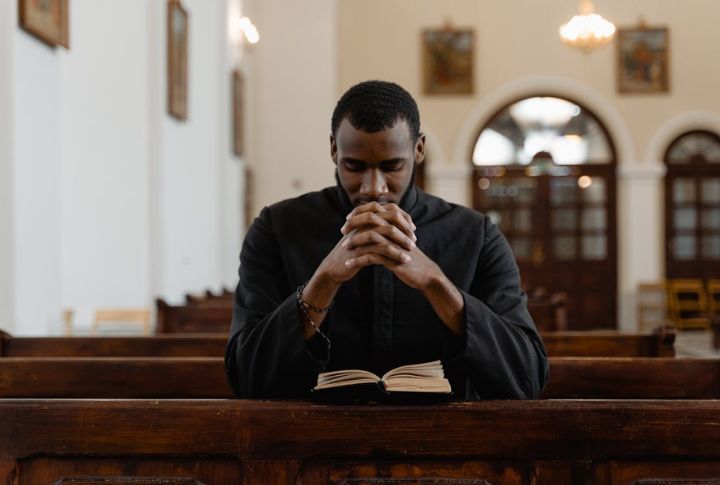
It’s easy to hear something a hundred times and never stop to question it. In church settings, familiar sayings can sound like gospel truth, even when their meanings are a bit more complicated. Over time, assumptions settle in unnoticed. The result is expressions that feel solid but don’t always line up with their origin. Let’s highlight 10 of those phrases.
“Cleanliness Is Next To Godliness”

Long before it became church language, the phrase started as a hygiene slogan. John Wesley included it in a sermon in the 1700s to urge physical and moral cleanliness. Somewhere along the way, it took on a spiritual tone, even though the Bible itself never makes that connection.
“Spare The Rod, Spoil The Child”

Used to justify physical punishment, this phrase isn’t from the Bible—it was coined by poet Samuel Butler in the 1600s. However, it echoes Proverbs 13:24: “He who spares the rod hates his son…” The “rod” here symbolizes loving discipline and guidance, not harsh force. Misusing it distorts the verse’s intent.
“The Eye Is The Window To The Soul”

The phrase is often mistaken for scripture, but it’s not in the Bible. “The eye is the window to the soul,” suggests that emotions are visible through the eyes. A similar verse, Matthew 6:22, states, “The eye is the lamp of the body,” referring instead to spiritual clarity and the soul’s inner focus.
“Money Is The Root Of All Evil”

It’s the kind of warning that sticks. Yet the full verse tells a different story: “The love of money is the root of all kinds of evil.” The love, not money itself, is the issue. Cutting the quote short turns a nuanced warning into a harsh oversimplification.
“Be Transformed By The Renewing Of Your Mind”

When Paul writes, “Be transformed by the renewing of your mind,” he’s not promoting self-help strategies. Romans 12:2 calls believers to reject cultural patterns and pursue change rooted in God’s truth. This renewal is continual, spiritual, and life-shaping—far beyond the reach of motivational thinking or temporary mindset adjustments.
“Where Two Or Three Are Gathered”

Matthew 18:20 is often quoted to suggest God’s presence in any small prayer group. While comforting, that’s not its original meaning. The verse appears in a passage about church discipline, affirming that when believers gather to resolve conflict within the church, God is present to guide and support the process.
“God Works All Things Together For Good”

Romans 8:28 is widely quoted as if it means every struggle ends happily. The text actually speaks of God’s purpose at work. For those who love Him, even hardship can serve eternal good. It’s about spiritual formation, not earthly ease, reminding believers that trials can still carry meaning.
“He Will Give You The Desires Of Your Heart”

Psalm 37:4 doesn’t teach that God fulfills every personal longing. The verse urges believers to delight in Him first. Then, He reshapes desires to match His will. The promise is not that wishes come true, but that the heart itself changes until it wants what God wants.
“The Truth Will Set You Free”

The phrase “The truth will set you free” often gets twisted into a license for harsh honesty. Yet John 8:32 shows Jesus speaking about something deeper: freedom that flows from knowing Him. It’s not about blunt words, but about truth revealed through His teachings that transform the soul.
“God Won’t Give You More Than You Can Handle”

This phrase is often used to comfort people during hardship, but it’s a misinterpretation of scripture. The Bible never says God limits life’s pain. In 1 Corinthians 10:13, the promise is about temptation. It assures that God provides a way out when facing moral trials, not emotional ones.

